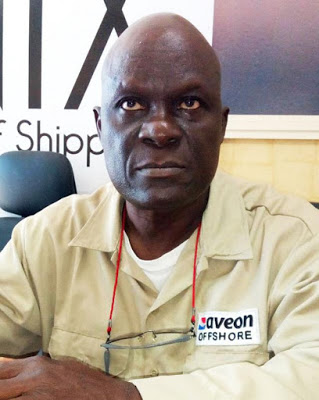By Captain Tajudeen Alao
I agree with BIMCO and ICS on their recent report that there would be global need for seafarers in five years’ time to about 89,000 seafarers, and recognition that presently there is a shortfall of about 26,000 seafarers.
This figure they gave must have been based on research and they have been leading in research work in the manpower development in the industry. That is why in the question of supply and demand we must maintain a balance. They are crying out to say if we do not train now, in five years’ time there would be shortfall of 89,000 seafarers.
One, people are losing interest in going to sea; let us look at an example in Ukraine and Portugal, when the Russian Wall collapsed in early 90s, the people ashore embraced western civilization in Ukraine and they were earning more than the people at sea. Whereas before, there was a seafarer who earned more than 10 times what his wife who worked as a teacher earned, but that changed with the collapse of the Russian Wall. So, people look for employment ashore and they don’t want to go to sea again.
So, there is need to put up a deliberate incentive to encourage people to go to sea. The shipping companies all over the world train cadets and support training institutions globally, because they are the end-users of the services to be provided by the seafarers.
And when there is a forecast that the economy is going to boom, like in five years’ time, Covid19 would have gone, the recession that was there before Covid19 would have gone as well, and things would pick up and there would be growth in global trade, there would be need for movement of goods, shipping companies would book for more tonnage in the shipyard. In fact, increase freight rates would attract more people to the business, and the men would be needed to move the ships from point to point.
In fact, when we were going to sea, there was not much of coastal trade and all the people there were foreigners. Then imagine situations when Mobil employed within short spaces, about 20 and another 15 master mariners because they were all expatriates doing the mooring masters job. If the National Line did not train those people, where would Mobil get them? When we train we train for the industry- harbor masters.
The National Inland Waterways Authority (NIWA) has not trained anybody besides its pioneer training of cadets in this country. The Nigerian Maritime Administration and Safety Agency (NIMASA) has no ship, it is not a commercial place, but the Nigerian Ports Authority (NPA), and NIWA, must have cadets that they train. People like Akinwale Wey, Kentebe, Capt. Adeyemo, Ebong, Onu, Diete Spiff , Aduwo were all Inland Waterways cadets.
So, all these bodies need to train; once you have one, two, three ships, you must train cadets.
Considering the need to stimulate the industry, there is no government subsidy for the shipping company, no subsidy for the trader; those who provide the cargo to move from point to point. There is no political will to guarantee cargo for the local operators.
The Shipping Development Decree 10 of 1987, tailored along the German model and initiated by Chief Raymond Dokpesi, came about to boost our national fleet, with provision of 3 per cent levy on all international freight…ship acquisition loan, cargo guarantee, ship building for shipyards and assurance of Nigerians onboard foreign-going ships under the National Maritime Authority(NMA) is there, but nobody is talking about it. They are now talking about the coastal trade, the money has accumulated and they are not giving out to the people.
We see that the seafarers today don’t have jobs. Maybe if we did the risk assessment, we would not have trained as many. But you may consider that not everybody trained would stay at sea; there would be change in career, like a colleague who just bagged his Ph.D from the Federal University of Technology, Owerri (FUTO), he has moved into academics.
So, when it comes to the manpower development at sea, supply of seafarers, there is the need for Merchant Navy Training Board. We have the Academy, and to train people we need lecturers.
The Government, which is the MARAD, the Minister of Transport, must set up a merchant navy training board that would look at the gaps and see the ways to bridge it. The examiners who would train the people; who would be training the master mariners? Who is going to examine them? It is the merchant navy training board that would put this in place for it to be accepted. So, this is where we are.
The shipping companies, the end-users, from research of the merchant navy training board would say this is the number of seafarers that we would require the number of master mariners, the number of marine engineers. To identify the gap, they would know the types of ships that are required and who would be needed to man them.
In view of the Africa Continental Free Trade Area (AfCFTA), we need the manpower. We need to boost the training in short courses if we are going to keep supporting the oil and gas sector.
The Maritime Academy will do these training cheaper compared to what obtains abroad, and many of the people don’t have the money for such trainings.
We need to know the types of ships out there providing services for the oil and gas and the training they require to be on board. Somebody will not be on a crew supply boat and say they are being trained? No way. When you move cargo from Port Harcourt to Lagos, that is shipping, but providing services offshore is not shipping.
Capt. Tajudeen Alao is President , Nigerian Association of Master Mariners.


































































